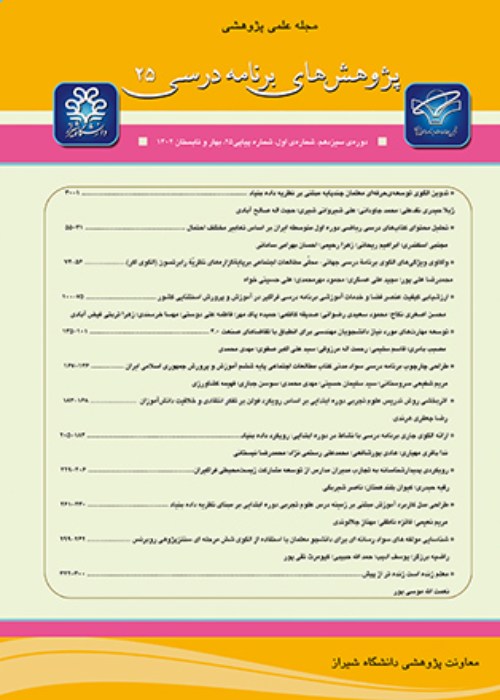An Investigation of the Features of a Model of the Glocal Social Studies Curriculum Based on Robertson’s Theory using Akker’s Model
Globalization as a main paradigm in the present era has changed all aspects of human life. Globalization refers to a process the goal of which is to integrate the people of the world into a single society, which necessitates the fading away of political, economic, cultural, and other boundaries. Many researchers have summarized the main characteristics of globalization in concepts such as the emergence of the global electronic village, the information revolution, the compression of time and space, the global expansion of consciousness, the disappearance of geographical boundaries, and the emergence of the cybernetic age. Globalization has also presented numerous challenges. Since globalization is aimed at changing political, economic, and social structures at the local level and exposing their limitations, some think that the integration resulting from globalization threatens the existence of subcultures. To deal with this threat called globalization and revive and preserve the culture and values of their society, some have resorted to “indigenization” in various fields including curriculum development. In dealing with the phenomenon of globalization, some countries and educational systems have adopted the position that globalization and localization are mutually exclusive, thus adhering strictly to either of these two approaches and ignoring the other in their educational policy and planning. This presents a significant challenge to educational systems in many countries, including Iran. The issue of welcoming globalization while remaining local poses a serious paradox to all individuals and education systems. A paradox does not represent a dead end for thought. That is, a thoughtful person who faces an intellectual conflict feels committed to confronting it as a challenge and looks for any possible opportunities arising from it. Therefore, instead of rejecting a challenge and, as a result, refusing to deal with it, one should learn to elevate thinking and promote collective thinking to set the agenda to manage a situation effectively. In this regard, Roland Robertson’s ‘glocalization theory’ is one of the theories that effectively empolys integrated and collective thinking to deal with both the global issue (globalization) and the local issue (localization). As a result, it can be considered as an optimal sociological basis that can be used in curriculum planning. Therefore, the current research aimed to analyze the characteristics of the ‘glocal curriculum’ model of social studies based on Robertson’s theory using Akker’s model.
The current research adopted a qualitative approach and was applied in terms of purpose. Data included all published and available texts, documents, and reliable sources related to Roland Robertson’s theory from 1968 to 2022. The sources were selected through purposeful sampling and the Cochrane systematic review. Inductive content analysis (open and central coding) was used to analyze the data, which led to the identification of 71 conceptual propositions extracted from the selected authentic documents related to Robertson’s theory. The practical implications of the identified conceptual propositions for the ‘glocal curriculum’ of social studies were examined, and 51 conceptual propositions were deduced. Then, Akker’s ten-component model was utilized to identify the features of the ‘glocal curriculum’ of social studies. Finally, the credibility of the data was determined through the peer-review data collection and analysis processes. Furthermore, the dependability of data was determined through the audit trail.
Based on the findings of this study, the goals of the ‘glocal curriculum’ include familiarization with the basic and important concepts of ‘globalization’ and indiginization, paying attention to ‘diversity and pluralism’, and cultivating creative and critical thinking skills. The content of the curriculum should be flexible and appropriate to the context where it is going to be implemented. In addition, active teaching approaches should be promoted in a glocal curriculum. The teacher has to play the role of a guide and a facilitator and is encouraged to tap into various teaching resources. Finally, the time and place should be flexible, the activities should be done in groups and in collaboration with others, and various qualitative evaluation methods have to be used to assess students’ performance.
A critical reading of Robertson’s globalization theory using Akker’s model led to the identification of the features of a glocal curriculum model of social studies. It is suggested that the curriculum of social studies in primary and secondary courses be evaluated using the glocal curriculum developed in the present study.
- حق عضویت دریافتی صرف حمایت از نشریات عضو و نگهداری، تکمیل و توسعه مگیران میشود.
- پرداخت حق اشتراک و دانلود مقالات اجازه بازنشر آن در سایر رسانههای چاپی و دیجیتال را به کاربر نمیدهد.


